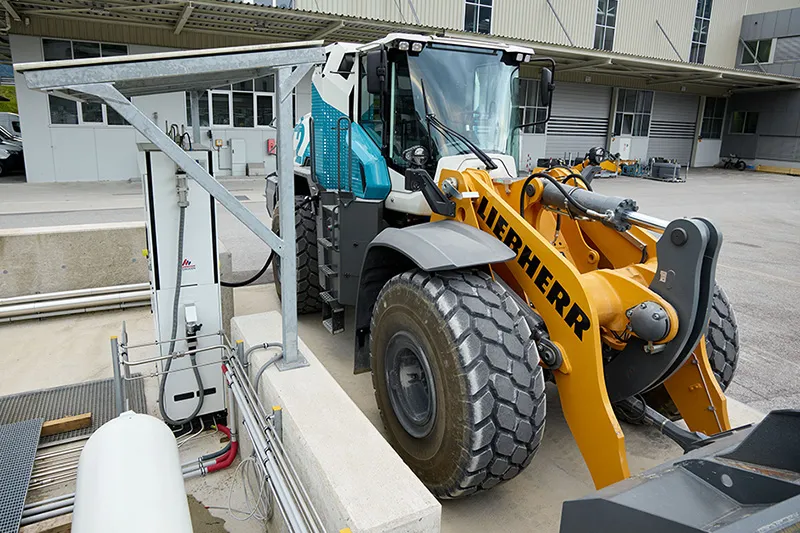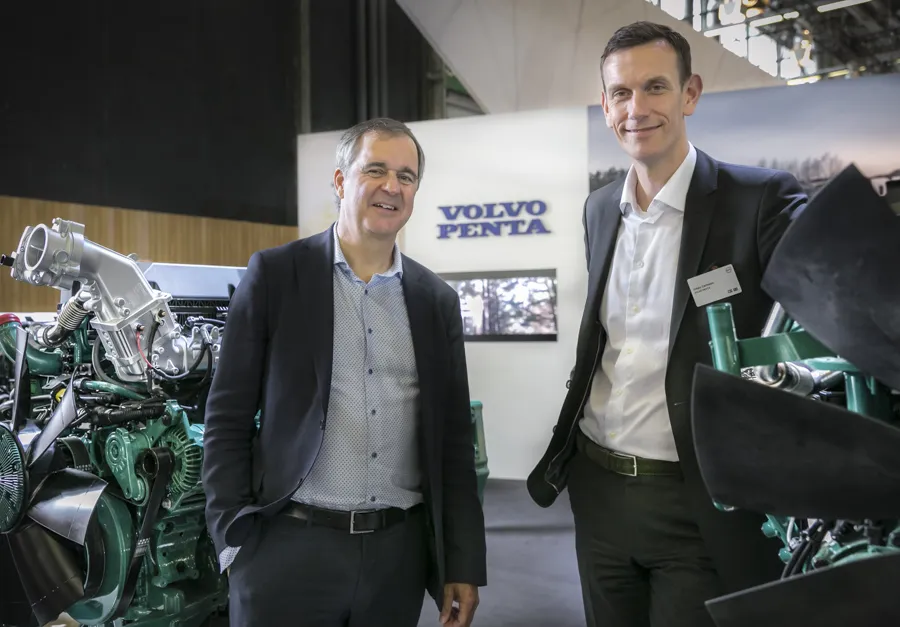
For smaller machines, battery-electric solutions are often suitable. However, the situation is different with larger machines with an operating weight of up to 40tonnes and high energy requirements, internal combustion engines fuelled by hydrogen offer many benefits.
These hydrogen engines are manufactured at the engine plant of Liebherr's Components product segment in Bulle (Switzerland). They enable zero emissions of greenhouse gases from the tailpipe and almost no nitrogen oxides. They are also highly efficient. Another advantage is that the interfaces are comparable to those of a diesel engine - thermally and mechanically. This represents a significant step forward in the development of sustainable large-scale machinery.
As part of the development of the hydrogen wheeled loader, Liebherr Bischofshofen opened its own hydrogen filling station, the first of its kind in the state of Salzburg. An important strategic partner in this project is Maximator Hydrogen, which is not only the manufacturer of the newly opened filling station, but also a research partner of Liebherr. Together, they are working on mobile filling facilities so that machinery can be refuelled directly at the construction sites. This is particularly important for remote construction sites and machines that are not very mobile.
Another reliable partner is MPREIS, which ensures the supply of green hydrogen. This is important because only through emission-free production, using wind, hydroelectric or solar energy, can hydrogen play a key role as a sustainable energy source.








